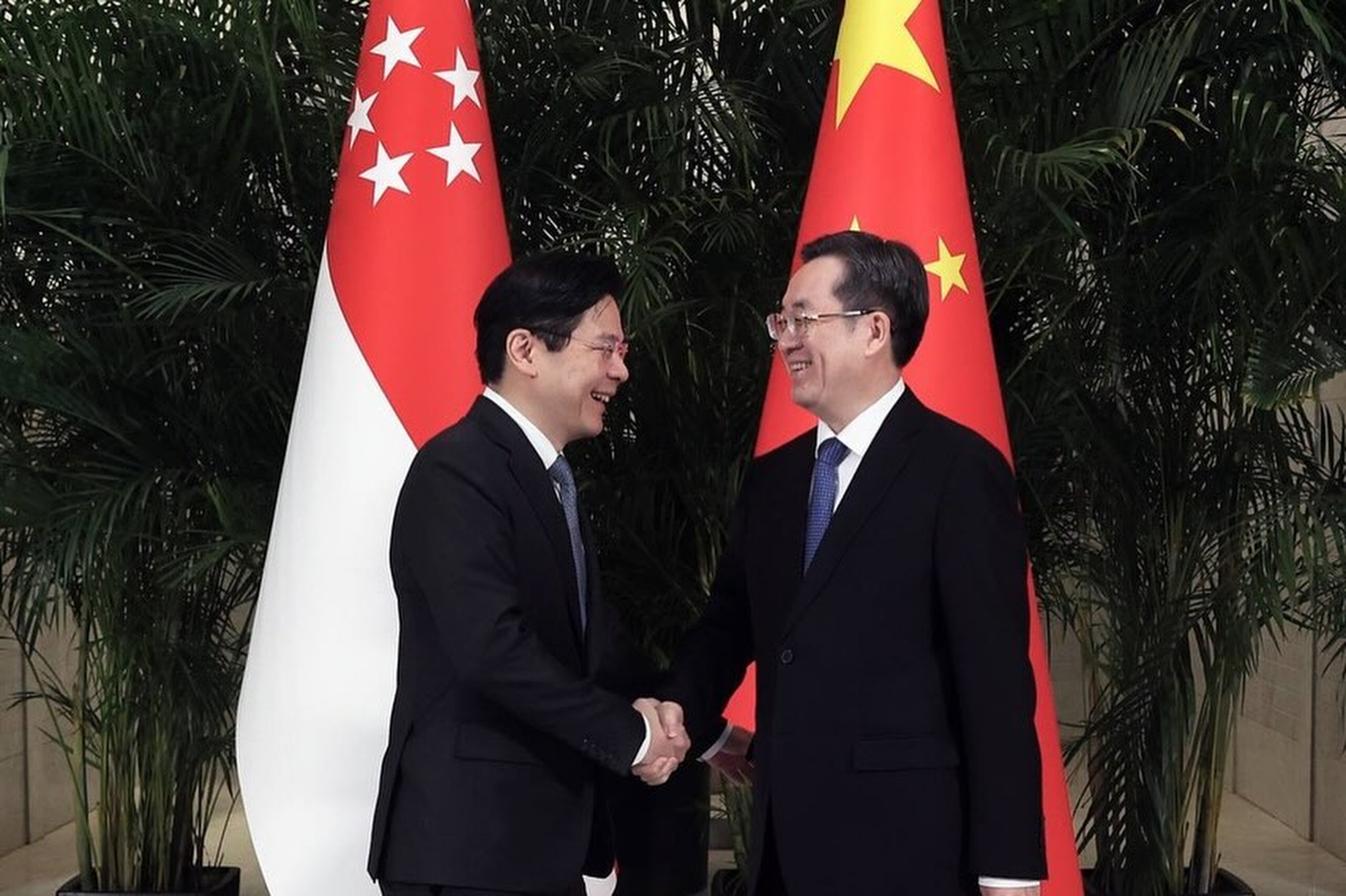
China and Singapore agree to let each other’s citizens travel visa-free
- Beijing hailed the deal as ‘great news’, while the city state said the new 30-day arrangement would come into force early next year
- The two countries signed a total of 24 agreements at their annual forum, which also covered areas such as trade and education
China and Singapore have agreed to introduce a mutual 30-day visa-free travel arrangement at their annual forum.
Wong, who co-chaired the event in Tianjin with Chinese Vice-Premier Ding Xuexiang, also said both sides wanted to strengthen cooperation in various sectors and he hoped the number of direct flights between the two countries would exceed pre-pandemic levels., according to Singapore media.
China’s foreign ministry spokesman Wang Wenbin said the agreement would be “great news” for citizens of both countries, adding that “greater people-to-people and cultural exchanges … serve the fundamental interests of the two peoples”.
He did not offer further details on the arrangement, only saying it would come into effect “at another date”.
Singapore’s foreign ministry said both countries “will work out the implementation details … and implement it in early 2024”.
Malaysia this month started granting Chinese travellers 30-day visa-free entry, joining Thailand as the two countries seek to woo mainland tourists who have long been the region’s biggest customers.
According to Singapore’s Prime Minister’s Office, a record 24 agreements were signed and endorsed at the forum on Thursday – covering areas such as education and trade, including an upgrade to their free-trade agreement.
Ding said both sides should closely focus on the new positioning of China-Singapore relations, which was upgraded to “all round high-quality, future-oriented partnership” earlier this year, and step up existing cooperation while exploring more new growth points, according to China’s readout.
Singapore’s statement said the meeting reviewed cooperation in a wide range of areas, including on China’s Belt and Road Initiative and fields such as the digital economy, renewable energy and science and innovation.
“Deputy Prime Minister Wong and Vice-Premier Ding agreed that Singapore-China cooperation had been comprehensive and progressive, evolving over the years in tandem with each countries’ respective development priorities,” it said.

“They also agreed that both sides should continue to adopt a forward-leaning approach and tap on opportunities in emerging areas to deliver high-quality outcomes that would benefit both countries as well as contribute to regional prosperity.”
It also said the new visa-free agreement was part of efforts to strengthen links between people from both countries and deepen cultural and educational exchanges.
Chung Ting Fai, a lawyer who advises high net-worth clients, said the move would be “very welcome” among Chinese travellers.
“I think many of them – when they are in Singapore for business – would need to open their bank accounts. And this provides the time for them to establish their businesses here. I think for those from inland cities, travelling arrangements can be quite daunting, so if they’re out, they can try to do more things at one stretch,” he said.
Ng Zhen-Yuen, 25, an entrepreneur who has occasional business meetings in China, welcomed the additional 15 days he can travel visa-free.
“I know of others who have had to transit to another country before the end of the 15 days before returning back to China for additional days,” he said.
Wong, who is also Singapore’s finance minister, will be in China until Friday.
His four-day visit also included a trip to Beijing, where he had a meeting with Premier Li Qiang, where they reaffirmed close relations between the two countries and agreed to strengthen ties between people and businesses.
Wong also met Vice-Premier He Lifeng to discuss ways to deepen bilateral cooperation in fields such as finance.
The two Asian countries have long maintained close ties. China is Singapore’s largest trading partner and the city state is China’s largest foreign investor, according to Singapore’s foreign ministry.


